
Filter News
Area of Research
- (-) Biology and Environment (71)
- (-) Materials (84)
- Advanced Manufacturing (3)
- Biology and Soft Matter (1)
- Building Technologies (1)
- Clean Energy (65)
- Climate and Environmental Systems (4)
- Computational Biology (1)
- Computational Engineering (3)
- Computer Science (15)
- Fusion and Fission (8)
- Fusion Energy (2)
- Isotope Development and Production (1)
- Isotopes (26)
- Materials for Computing (11)
- Mathematics (1)
- National Security (34)
- Neutron Science (26)
- Nuclear Science and Technology (16)
- Quantum information Science (6)
- Supercomputing (110)
News Topics
- (-) Chemical Sciences (35)
- (-) Climate Change (43)
- (-) Computer Science (34)
- (-) Cybersecurity (5)
- (-) Isotopes (13)
- (-) Mercury (7)
- (-) Physics (30)
- (-) Space Exploration (2)
- (-) Transformational Challenge Reactor (3)
- 3-D Printing/Advanced Manufacturing (27)
- Advanced Reactors (4)
- Artificial Intelligence (15)
- Big Data (10)
- Bioenergy (51)
- Biology (73)
- Biomedical (20)
- Biotechnology (13)
- Buildings (5)
- Clean Water (14)
- Composites (11)
- Coronavirus (14)
- Critical Materials (13)
- Decarbonization (25)
- Energy Storage (37)
- Environment (100)
- Exascale Computing (6)
- Frontier (6)
- Fusion (8)
- Grid (8)
- High-Performance Computing (24)
- Hydropower (8)
- Irradiation (1)
- ITER (1)
- Machine Learning (11)
- Materials (78)
- Materials Science (82)
- Mathematics (3)
- Microscopy (34)
- Molten Salt (3)
- Nanotechnology (42)
- National Security (5)
- Net Zero (3)
- Neutron Science (36)
- Nuclear Energy (16)
- Partnerships (12)
- Polymers (18)
- Quantum Computing (3)
- Quantum Science (11)
- Renewable Energy (2)
- Security (3)
- Simulation (15)
- Summit (11)
- Sustainable Energy (42)
- Transportation (15)
Media Contacts
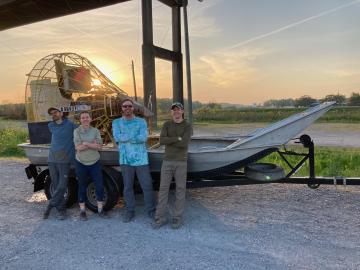
As a biogeochemist at ORNL, Matthew Berens studies how carbon, nutrients and minerals move through water and soil. In this firsthand account, Berens describes recent fieldwork in Louisiana with colleagues.
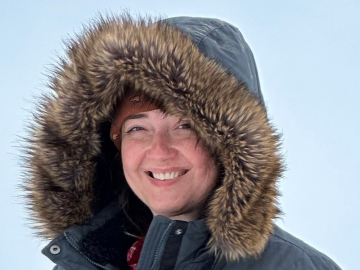
Colleen Iversen, ecosystem ecologist, group leader and distinguished staff scientist, has been named director of the Next-Generation Ecosystem Experiments Arctic, or NGEE Arctic, a multi-institutional project studying permafrost thaw and other climate-related processes in Alaska.
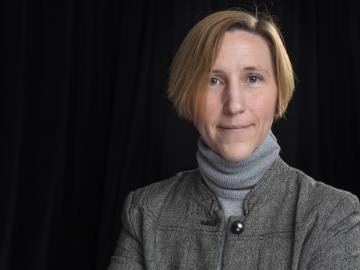
Kelly Chipps, a nuclear astrophysicist at ORNL, has been appointed to the Nuclear Science Advisory Committee, or NSAC. The committee provides official advice to DOE and the National Science Foundation, or NSF, about issues relating to the national program for basic nuclear science research.
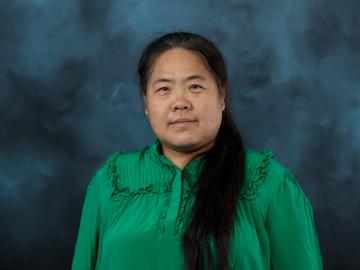
Xiao-Ying Yu, a distinguished scientist in the Materials Science and Technology Division of the Department of Energy’s Oak Ridge National Laboratory, has recently been chosen for several prominent editorial roles.
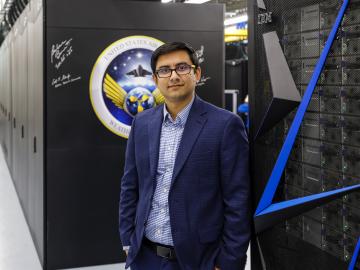
Climate change often comes down to how it affects water, whether it’s for drinking, electricity generation, or how flooding affects people and infrastructure. To better understand these impacts, ORNL water resources engineer Sudershan Gangrade is integrating knowledge ranging from large-scale climate projections to local meteorology and hydrology and using high-performance computing to create a holistic view of the future.
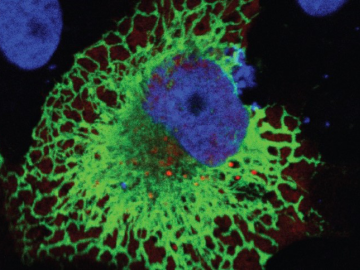
Oak Ridge National Laboratory scientists exploring bioenergy plant genetics have made a surprising discovery: a protein domain that could lead to new COVID-19 treatments.
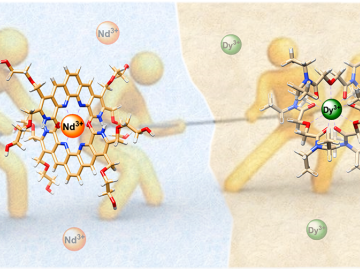
ORNL scientists combined two ligands, or metal-binding molecules, to target light and heavy lanthanides simultaneously for exceptionally efficient separation.

Few things carry the same aura of mystery as dark matter. The name itself radiates secrecy, suggesting something hidden in the shadows of the Universe.
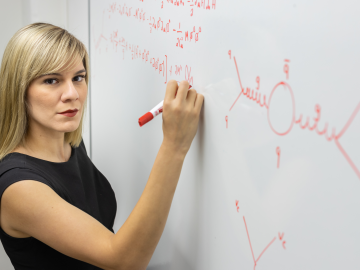
Andrea Delgado is looking for elementary particles that seem so abstract, there appears to be no obvious short-term benefit to her research.
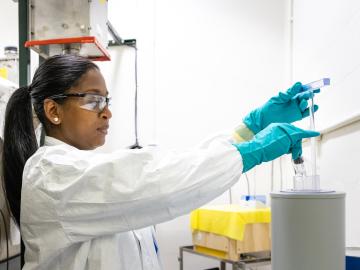
A series of new classes at Pellissippi State Community College will offer students a new career path — and a national laboratory a pipeline of workers who have the skills needed for its own rapidly growing programs.


